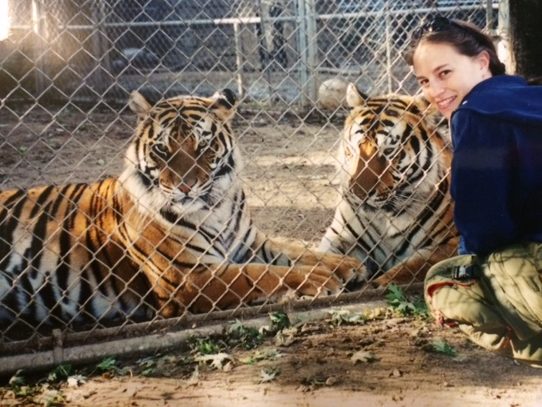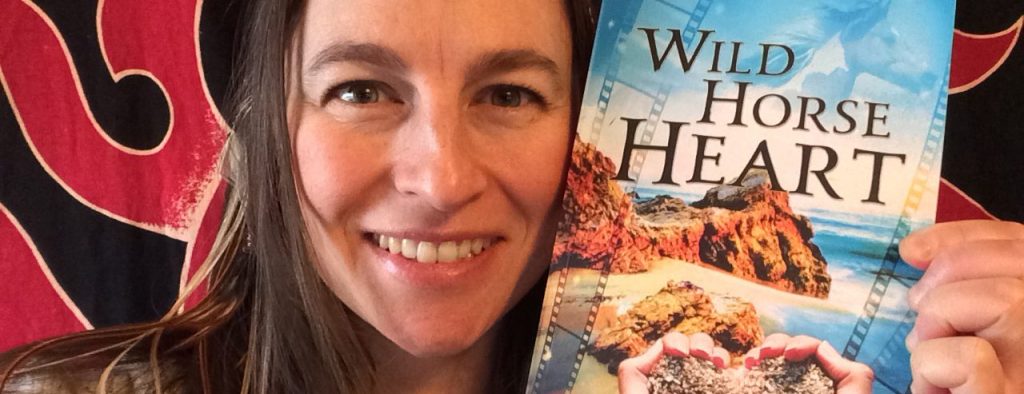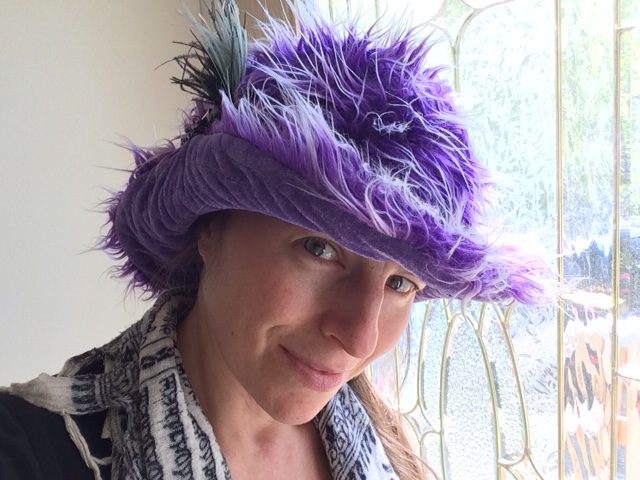
The Making of a Screenwriter
Do you remember when Terminator 2 came out?
It was 1991. I was thirteen, in full rebel mode, high on hormones and Gen-X angst. When I saw the trailer for Terminator 2: Judgement Day, I was hooked.
In magazines, I read about Linda Hamilton getting ripped for the role and director James Cameron casting Eddie Furlong to play the part of Sarah Connor’s son. The badass factor for this film was off the charts, and every time I saw the trailer during commercial breaks of Young Riders or whatever else I was watching, it made me want the full story.
I had to know what happened.
While waiting for the film to come out, I found the screenplay for sale in a book store. It had tons of pictures from the movie—hello, Eddie Furlong—and delivered a fascinating story in a format I’d never seen before.
Between idolizing Linda Hamilton and crushing on Eddie, I studied that script. I got my first glimpse of screenwriting, and it planted a seed. Thirty years later, it’s coming to fruition.
A Poet First
Writing poetry got me through my teens. Quite literally. It was my release, my therapy, my coping mechanism.
I wrote short stories. Started several novels that had characters but no plot, or pretty words but shallow characters, and finished none of them.
I morphed from poet to songwriter, and went wildly out into the world.
Motorcycles.
Heartbreaks.
Traveling.
Snowboarding.
Singing to tigers.
I needed to live before I could write.

The Screenplay of 2010
The first rule of the Screenplay of 2010 is that we don’t talk about the Screenplay of 2010.
Actually, maybe it was ’09. The years have blurred.
A vague decade ago, I wrote my first complete screenplay. I had no idea what I was doing. It was way too long, with a theme that pelted you over the head and characters that lacked depth.
With the exuberant ignorance of a novice, I sent this beast of a manuscript to two friends who worked in the film industry. They very kindly told me I’d done a wonderful thing completing a script, but it should be cut way down, the dialogue rewritten, and I needed to work on adding conflict.
I chewed on that feedback for a few years, then started writing non-fiction and novels. With ten manuscripts under my belt between then and now, I’ve not only learned a ton about storytelling, I’ve gotten to the point where I realize that no matter how much I grow as a writer and a human being, there will always be more to learn.

Evolution
This year, I decided to dive back into screenwriting.
It’s an entirely different way to look at storytelling, and coming to it with a beginner’s mind helps. So does years of receiving feedback and rewriting my novels. Somehow, screenwriting feels less personal and more approachable, at least half of which has to do with the sheer brevity of a script.
Revising a 100,000-word novel over and over again is a formidable task. Burnout is real. Me branching out into screenwriting is a direct result of burnout. I want to keep writing but I need a break from editing novels.
And I’ve been busy. In the past few months, I’ve adapted two of my novels to feature films, wrote half of a TV pilot, and am currently outlining a third feature. All my scripts need work, but I’ve received helpful feedback and might actually know how to fix them.
The big shocker: This pantser is turning into a plotter.
In the writing world, a “pantser” is someone who writes a story without outlining, or with only a loose idea, just letting it flow. I’ve written novels where it’s like the characters are writing for me. It’s chaotic, and wonderful, with constant discoveries. But it can also make rewrites hell.
Screenwriting is forcing me to plan. To plot. To outline and do character sheets. And there’s this part of my brain that’s going, “You could’ve been doing this the whole time.”
Being organized pays off. Surprise, surprise.
I’ve got a nine-page outline for my next WIP (Work In Progress), plus profiles for fourteen named characters and five factions at odds with each other.
Yes, I’m proud of myself.
My love of screenwriting started when I was thirteen. It’s 2021, and I’m just now getting to the point where maybe I can write a decent screenplay. I’m not saying it takes other people that long, but that’s how my journey has gone. And it’s kinda cool to look back at where it all started, with a story by James Cameron and William Wisher, starring Arnold Schwarzenegger, Linda Hamilton, and Edward Furlong.
Just for fun, here are some highlights from the film with the Guns ‘n Roses song that made the T2 soundtrack extra awesome. This music video contains SPOILERS.
Top photo by Glenn Carstens-Peters on Unsplash




